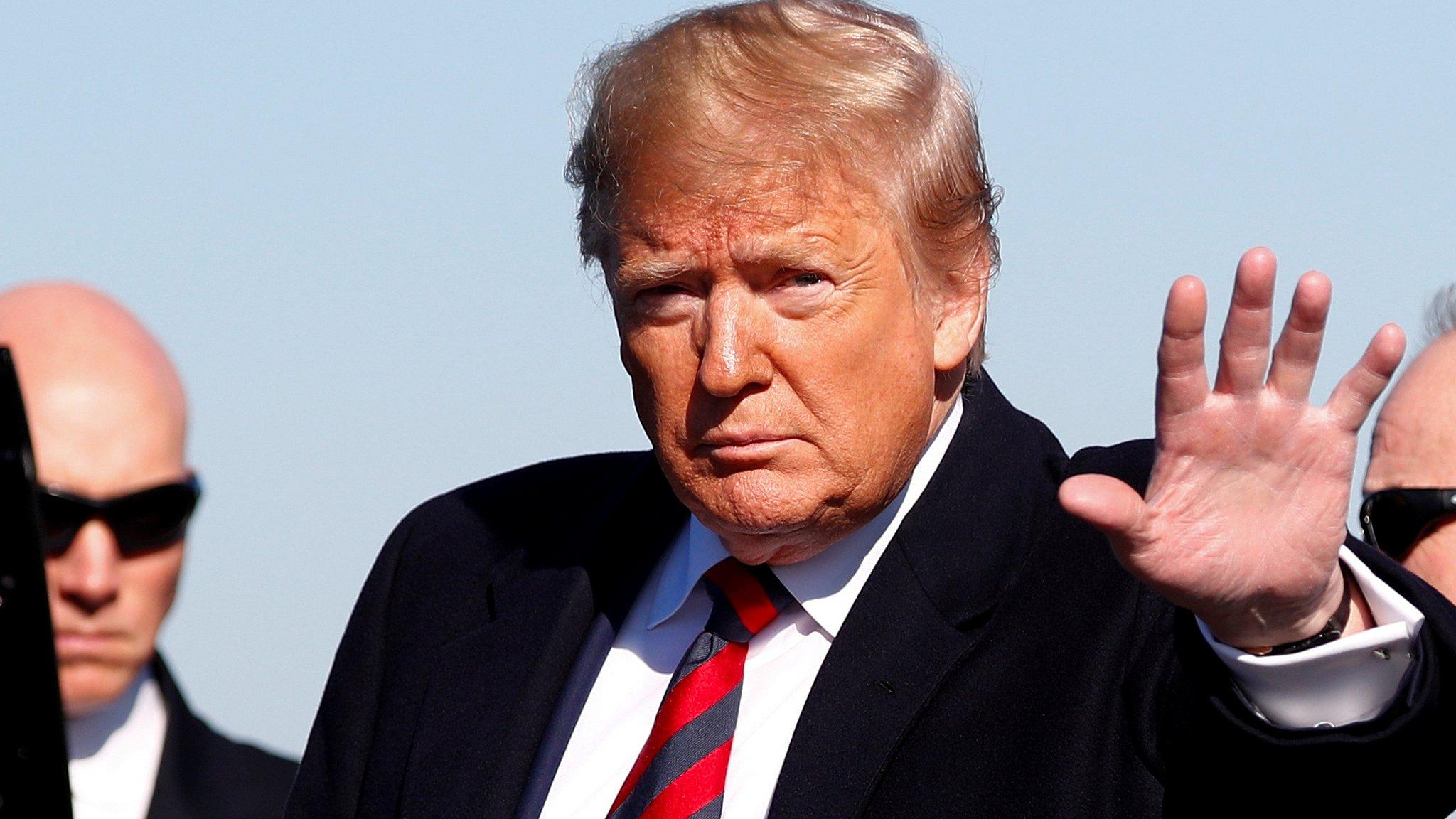Trump impeachment: White House signals it will not attend hearings
- Published
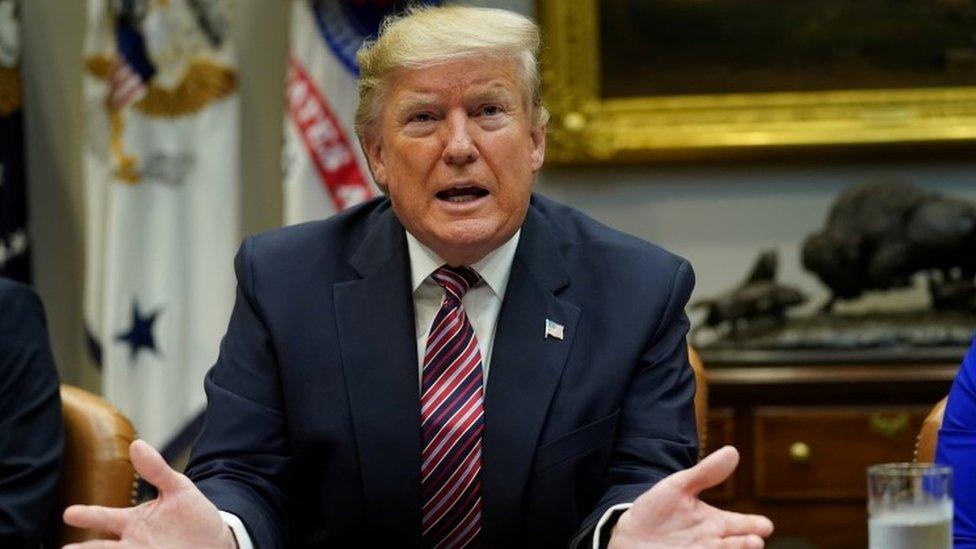
The White House has indicated it will not take part in further impeachment hearings in Congress due next week.
In a letter sent to the chairman of the House Judiciary Committee, it urges Democrats to "end this inquiry now".
The letter does not explicitly rule out attending but officials told US media that the administration saw no reason to take part in an "unfair" process.
President Donald Trump is alleged to have pressured Ukraine in a way that would help him politically.
A deadline for the administration to decide whether to send a legal representative or witnesses to the House Judiciary Committee passed on Friday.
The committee is in the process of drawing up articles of impeachment against Mr Trump, leading to a vote in the House of Representatives before a trial in the Senate - possibly early in January.
What did the White House say?
The letter, from White House counsel Pat Cipollone to judiciary committee chairman Jerry Nadler, describes the impeachment process as a "charade".
House Democrats are proceeding with articles of impeachment without a "single shred of evidence", it says.
"Your impeachment inquiry is completely baseless and has violated basic principles of due process and fundamental fairness.
"You should end this inquiry now and not waste even more time with additional hearings," it goes on.
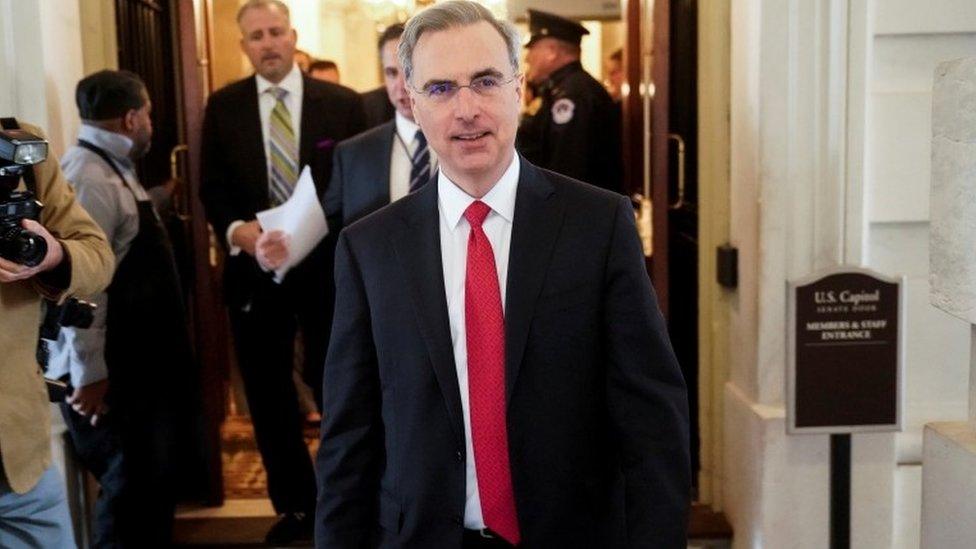
Pat Cipollone - impeachment a "charade"
The letter finishes by reminding the committee that President Trump has called - if the impeachment process continues - for a "fair trial in the Senate" to happen soon.
Mr Trump's Republicans are in the majority in the Senate; the Democrats hold sway in the House of Representatives and on the judiciary committee.
"We haven't been given any fair opportunity to participate. The speaker has already announced the predetermined result and they will not give us the ability to call any witnesses," an official told Reuters.
What is Mr Trump accused of?
An anonymous whistleblower complained to Congress in September about a July phone call by Mr Trump to the president of Ukraine, in which Mr Trump appeared to tie US military assistance to Ukraine launching investigations which could help him politically.
In return for those investigations, Democrats say Mr Trump offered two bargaining chips - $400m (£304m) of military aid that had already been allocated by Congress, and a White House meeting for President Volodymyr Zelensky.
Democrats say this pressure on a vulnerable US ally constitutes an abuse of power.
The first investigation Mr Trump wanted from Ukraine was into former Vice-President Joe Biden, his main Democratic challenger, and his son Hunter. Hunter Biden joined the board of a Ukrainian energy company when his father was President Obama's deputy.
The second Trump demand was that Ukraine should try to corroborate a conspiracy theory that Ukraine, not Russia, had interfered in the last US presidential election. This theory has been widely debunked, and US intelligence agencies are unanimous in saying Moscow was behind the hacking of Democratic Party emails in 2016.

A SIMPLE GUIDE: If you want a basic take, this one's for you
GO DEEPER: Here's a 100, 300 and 800-word summary of the story
WHAT'S IMPEACHMENT? A political process to remove a president
VIEW FROM TRUMP COUNTRY: Hear from residents of a West Virginia town
CONTEXT: Why Ukraine matters to the US
FACT-CHECK: Did Ukraine interfere in the 2016 election to help Clinton?
CASE FOR & AGAINST: What legal scholars say about Trump conduct
What does it take to impeach a president?

How does impeachment work?
Impeachment is the first part - the charges - of a two-stage political process by which Congress can remove a president from office.
If, following the hearings, the House of Representatives votes to pass articles of impeachment, the Senate is forced to hold a trial.
A Senate vote requires a two-thirds majority to convict and remove the president - unlikely in this case, given that Mr Trump's party controls the chamber.
Only two US presidents in history - Bill Clinton and Andrew Johnson - have been impeached, but neither was convicted.
President Richard Nixon resigned before he could be impeached.
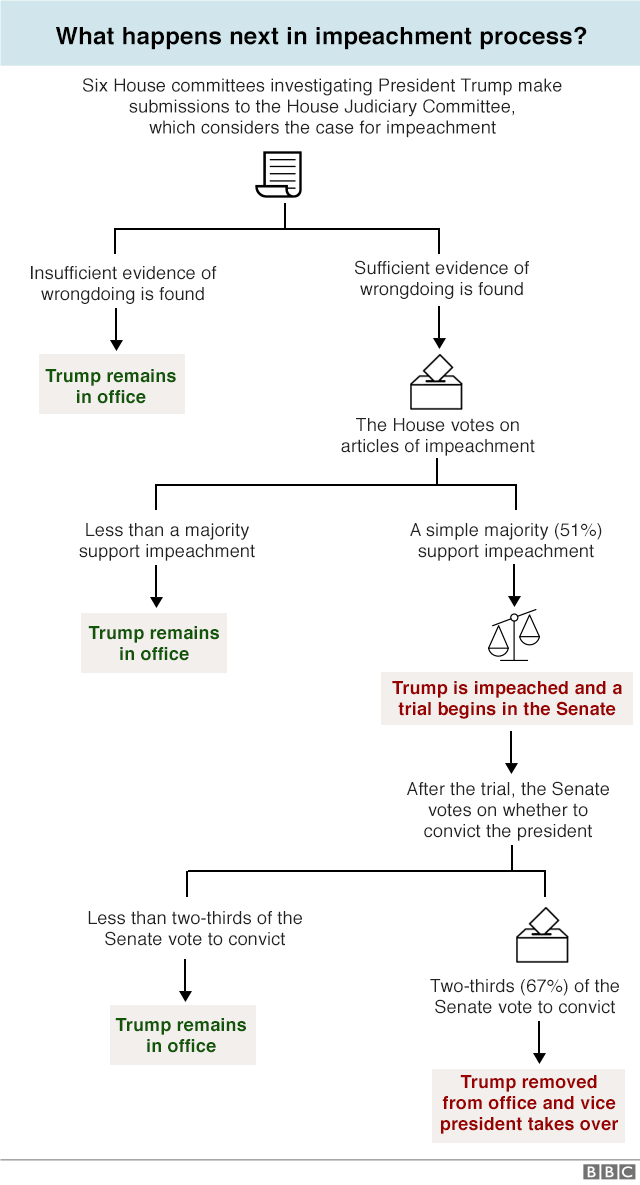


Learn more about the impeachment inquiry

- Published5 December 2019
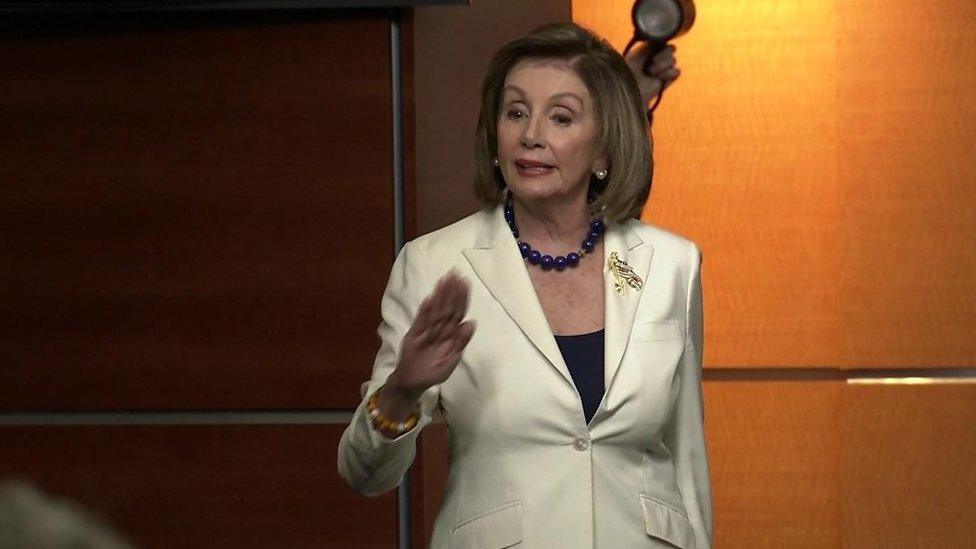
- Published19 December 2019

- Published5 February 2020
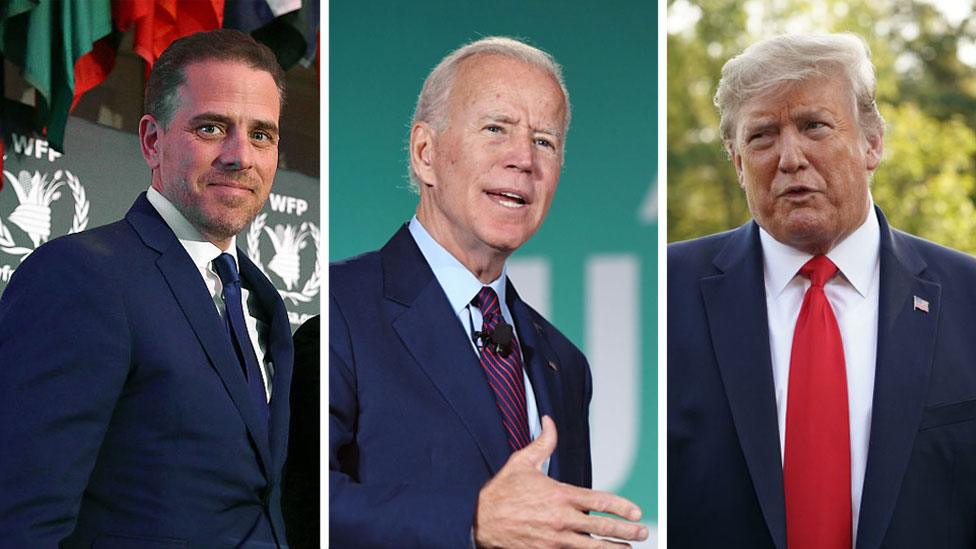
- Published19 December 2019
